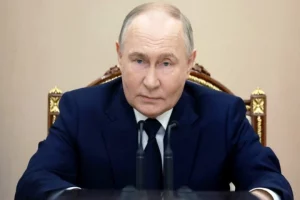Amid high inflation and shortage of food, the uncertainty over the Black Sea Grain Initiative (BSGI) has hit Pakistan, which is finding it more and more difficult to balance relations with Russia, Ukraine and the West. The limbo could once again lead to a surge in food prices in the South Asian nation in the coming months. After approaching European Union envoy Josep Burrell on Monday, the country’s Foreign Minister Bilawal Bhutto-Zardari held a telephonic discussion today on the grain deal with his Russian counterpart Sergei Lavrov. Interestingly, this discussion comes after Ukraine’s Foreign Minister Dmytro Kuleba’s visit to Islamabad last week.
Kubela held a meeting with Pakistan Prime Minister Shehbaz Sharif and Bhutto Zardari among others.
“Islamabad had played so far on both sides of the conflict, supplying defence supplies such as cluster munitions, rockets, howitzer shells and other ammunition to Ukraine’s military, while at the same time seeking cheaper oil and wheat from Russia,” Geopolitica.info, a platform providing news and analysis on foreign affairs noted. But for crisis-hit Pakistan, balancing its relations with Russia as well as the West is becoming precarious.
Earlier this week, several Russian newspapers highlighted how Ukraine has been seeking increased cooperation from Pakistan amid the ongoing war.
Kubela during his visit to Pakistan claimed that “Russia is increasing its exports of grain, making more money for its war machine.”
Though Pakistan has denied supplying ammunition to Kiev, the commander of the 17-tank battalion of the Ukrainian army told BBC that countries such as Czech Republic, Romania and Pakistan have been supplying weapons. He even complained that rockets supplied by Pakistan were not of good quality.
“The Ukraine conflict has also brought difficulties for developing countries and the Global South, particularly in terms of fuel, food and fertilizer shortages. Pakistan is no exception. We, therefore, have a vested interest in promoting peace and reconciliation,” Bhutto-Zardari added.
Though in June, the cost of food in Pakistan came down considerably to 39.49 per cent after touching 48.65 per cent in May, problems continue for Islamabad remain at elevated levels. Between January and May, Pakistan’s food inflation remained above the 40 per cent mark. According to the International Monetary Fund (IMF) the scrapping of the grain deal could push global food prices by 10-15 per cent.
Pakistan, which is battling one of the worst economic crises in its history, needs Russia for sourcing cheap fuel but at the same time pressure is now mounting from the West. At this point, Pakistan is in no position to unsettle its ties with Europe and the US. After months of negotiations, Islamabad has managed to get a $3 billion financial assistance package from the IMF.
Brokered by Turkey and the United Nations, the deal between Russia and Ukraine was struck in July last year, following the outbreak of the war between the two countries. The deal was aimed at ensuring steady supplies of grain through a designated corridor in the Black Sea.
Meanwhile, Russian President Vladimir Putin today announced supplying of free grains to a few African nations amid the uncertainty over the BSGI.
Also read: With grain initiative over, Russia warns Ukraine against using Black Sea zone for new deals



















